Trump declares that “war is over” - Dear US, Dear Israel, the pressure has only just begun
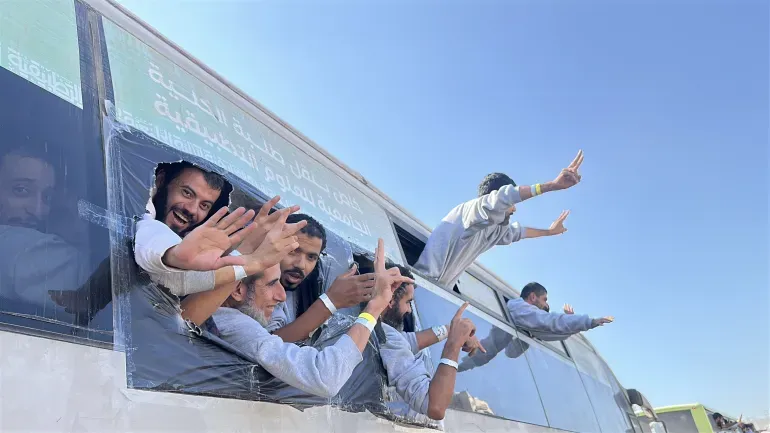
When U.S. President Donald Trump strode into the Knesset today, the cameras and applause captured a photo-op that many world leaders will want to freeze-frame: the return of the last living Israeli prisoners, a US-brokered pause in a two-year bloodletting, and a president who declared - in blunt, headline-ready terms - that “the Gaza war is over.”
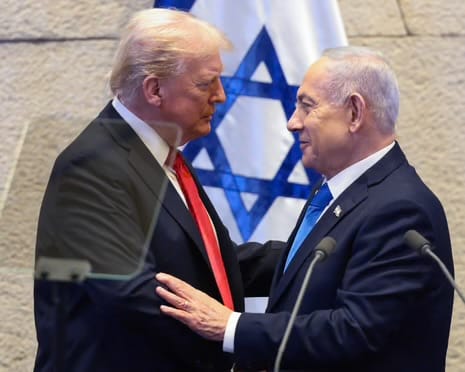
But a sound bite and a photo do not make justice. For Palestinians, for those who watched families dig through rubble for bones, for the communities that lost whole neighbourhoods and will now suffer the long winters of displacement and sickness that follow siege and bombardment, the words “the war is over” are not an ending - they are a challenge. They are a provocation to memory, to accountability, and to relentless solidarity.
What happened: the visit, the interruptions, the choreography
The day was monumental by any diplomatic measure. Hamas released the last 20 living Israeli prisoners after protracted negotiations; Israel began freeing more than 1,900 Palestinian hostages as part of the exchange; Trump flew in to oversee and to headline a summit intended to formalise a fragile truce and an uneasy roadmap for Gaza’s future. International broadcasters described scenes of reunions in Tel Aviv, buses of freed Palestinians leaving the Ofer facility, and delegations moving on to a summit in Sharm el-Sheikh, Egypt.
Inside the Knesset, the scripted grandeur frayed at the edges. Members of the joint Arab-Jewish Hadash-Ta’al bloc - notably Ayman Odeh and Ofer Cassif - interrupted the address, holding up placards and shouting demands for recognition of Palestine before being removed by security. The outburst was brief but telling: it exposed the fissures in Israeli public life and punctured the staging of a one-note victory. Several news outlets captured the moment and named the MPs who refused to let the theatre of closure proceed unchallenged.
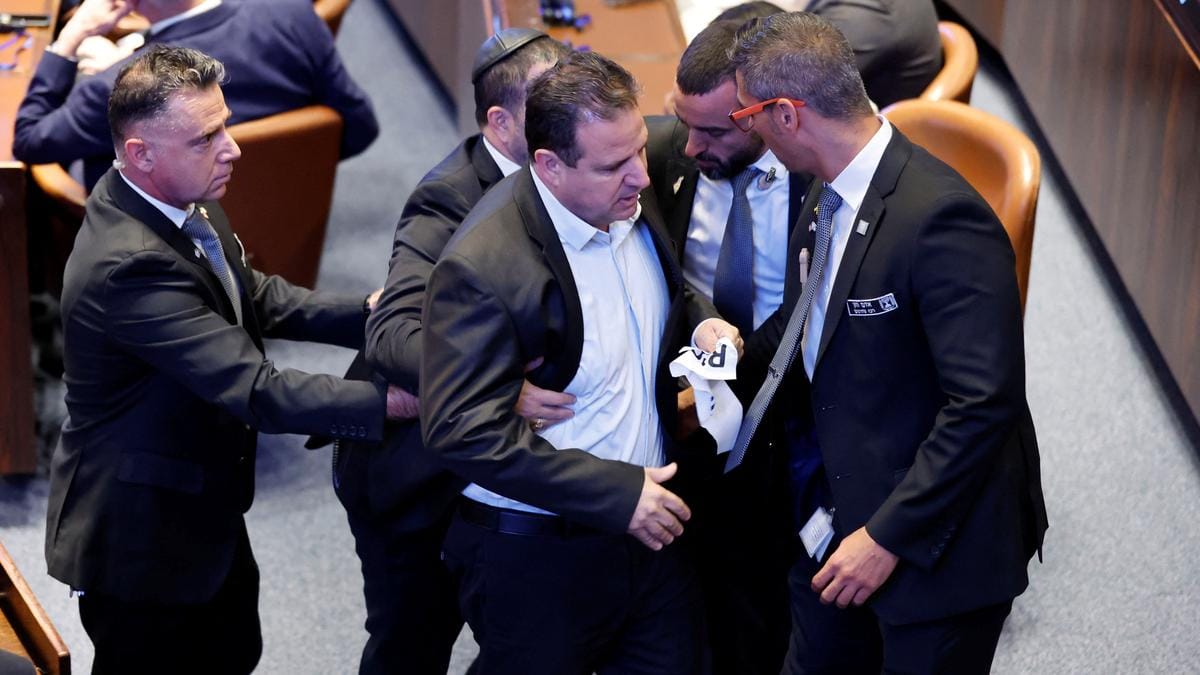
Trump’s rhetoric was framed triumphantly. He used phrases like a “dawn of a new Middle East,” touted US influence in securing the deal, and, in a line that will now be replayed globally, announced that “the Gaza war is over.”
“True peace that will save both peoples of this land from destruction will only come with the end of the occupation and apartheid and the establishment of a Palestinian state…”,
were the words of left-wing lawmaker Ofer Cassif.
Who is celebrating - and at what cost?
It is no small thing to welcome home people held prisoner for years. The images of reunions are powerful. But the exchange that produced those scenes also carries a ledger of unspeakable losses: decades of blockade and dispossession; two years of relentless bombing that left hundreds of thousands of Palestinians martyred, entire hospitals and schools razed; and two million people displaced within a territory no larger than a small city. Independent counts compiled during this conflict noted catastrophic Palestinian civilian casualties and near-complete destruction in many areas of Gaza. Those facts are part of the context that makes a single line - “the war is over” - inadequate.
The prisoner releases: numbers, destinations, and why they matter
The prisoner/hostage exchanges - one of the central pillars of the deal - was immense in scale. Reporting from AP, Reuters, The Guardian and others documents that Israel released more than 1,900 Palestinian hostages as part of the first phase; many were transported by Red Cross buses to Ramallah and to locations inside Gaza, and 154 were deported or transferred to Egypt as the deal required third-party arrangements for some individuals. Media teams at the scenes reported jubilant scenes in Ramallah and elsewhere as released prisoners returned to families and communities.
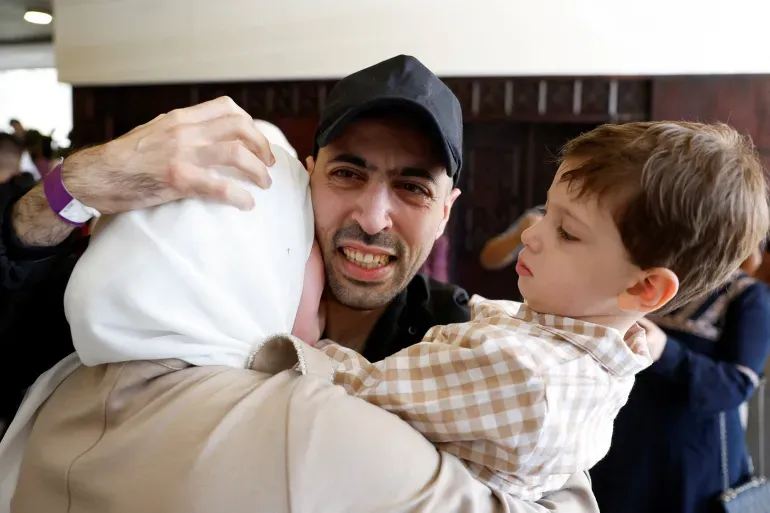
That scale - nearly two thousand people freed at once - is itself an admission of the depth of Israeli detention policy over decades. Yet the circumstances of release also raise practical questions: who was released to where, under what conditions, and what legal or humanitarian guarantees accompany those movements? Several reports note that some releases involved deportations to Egypt rather than returns to Gaza, underscoring how the deal routes people through third countries and, sometimes, into exile.
The ceasefire is real - and fragile
The pause in fighting is a relief. The handover of hostages and the opening of aid corridors are life-saving measures. But every experienced observer of Gaza knows that pauses can be temporary and peace plans can be paper thin. Key elements remain unresolved: the question of who governs Gaza and under what law; whether Hamas will be disarmed; how reconstruction will proceed without removing the structures that permitted mass expulsions and repeated military incursions; whether humanitarian access will be sustained; and whether international guarantees and monitors will be empowered to enforce the terms. Past ceasefires have collapsed when any of these elements were absent. Recent reporting has flagged exactly these ambiguities as reasons why the current truce must be treated with caution.
Why “it isn’t over” - an activist’s argument
When a U.S. president declares that a war is over, it is a bold claim, as the US tends to be the one supplying the means for things to go unpunished, what is over? The support you gave? For the bereaved families in Gaza, for the doctors who lost colleagues and for the generations of children who now live among rubble and unexploded ordnance, war’s afterlife continues for years. “Over” for a statesman often means “operational pause”; for the oppressed it must mean justice. We, the protestors, organisers, and advocates, must insist that “peace” include accountability.
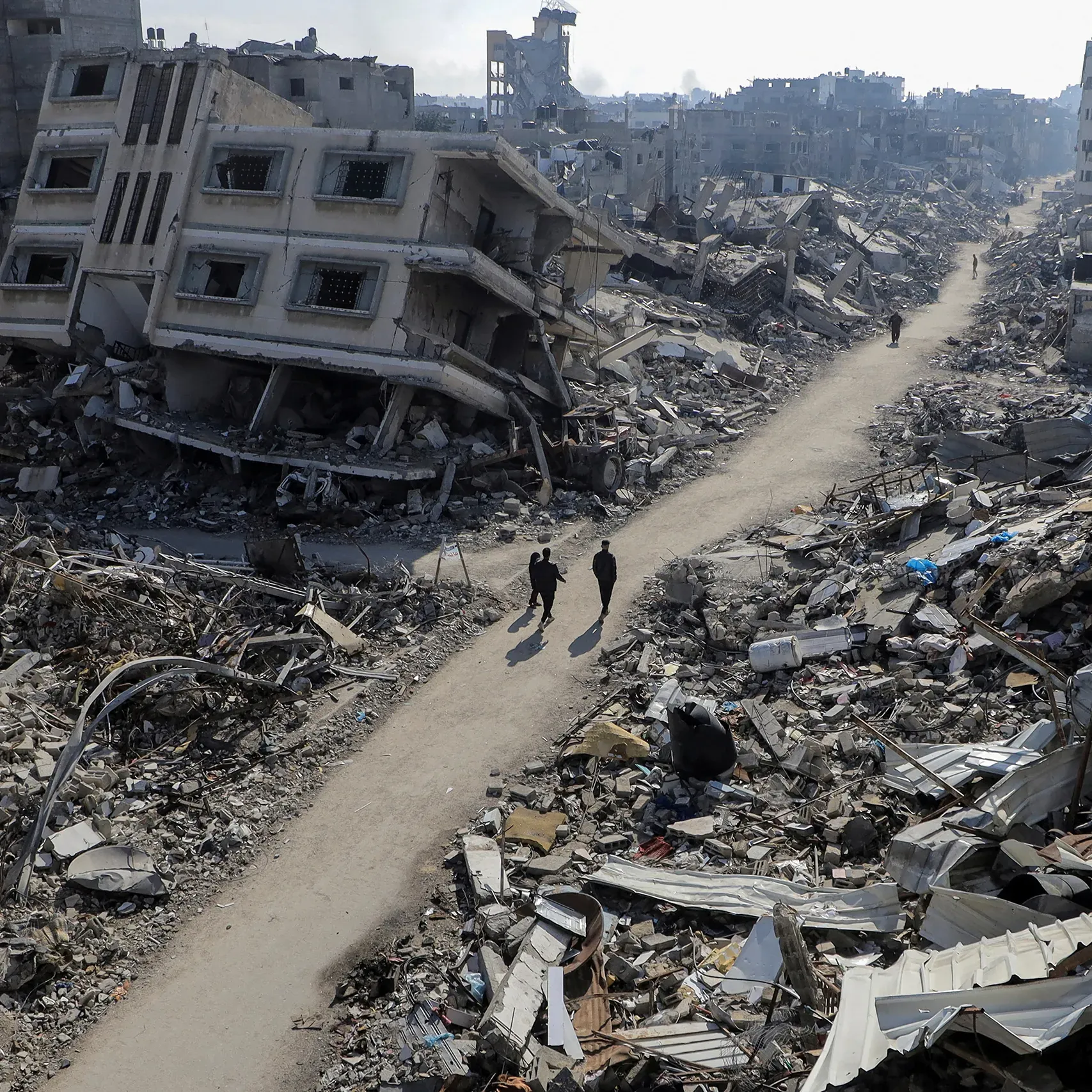
Accountability means: independent investigations into the conduct of the war; reparations and a Marshall-scale reconstruction under Palestinian oversight; lifting of blockades that function as collective punishment; return and restitution where possible; and a legal reckoning for policies that led to mass civilian death and destruction. Accepting a congratulatory narrative - “the war is over” - without pursuing these is to concede the terms of impunity.
We are just beginning our work because the mechanisms of justice are slow and because power prefers closure to accountability. Boycotts of Israeli goods, divestment campaigns, sustained legal pressure, public reports that document every bombing and every unlawful detention - these are the tools that amplify Palestinian demands for dignity. The prisoner releases and the hostage reunions are not endpoints; they are reminders of what was taken and what our movement must reclaim: land, rights, and a future in which Palestinian lives are not collateral. Independent reporting, legal advocacy, and mass mobilisation will be the instruments that keep the story alive until structural change follows.
What we demand now
- Full, independent investigations into civilian casualties and destruction during the two years of operations.
- A binding, internationally monitored plan for Gaza’s reconstruction that restores services and permits displaced Palestinians to return.
- An end to collective punishments - blockades and restrictions - that keep entire populations at the mercy of aid shipments.
- Legal accountability, including support for victims’ legal cases in credible courts and international forums.
- Continued pressure to recognise Palestinian statehood as a political horizon, not a slogan - because recognition is a transfer of rights and protections, not merely diplomatic language.
A closing word: the work ahead
Donald Trump’s visit and his gavel-smashing headline - “the war is over” - will be repeated in brief news cycles and triumphant television montages. That moment will be photographed and archived. But history will ask: what came after the photo? Did the world use this window to rebuild justice, or did it let closure become a euphemism for forgetting?
We will not permit forgetting. We will document every casualty, trace every displacement, demand every name be remembered. The prisoner releases and the hostage reunions give us a moral and tactical opening - not an end. As protestors and organisers, we will grow louder, broader and more determined. We will pressure institutions, consumers, and governments. We will breathe down the neck of complacency until accountability is not optional.
Because for those who remain under rubble, for the families whose loved ones never returned, for the communities whose futures were brokered in summit halls: “over” is not a return to what was. It is the first line in a longer conversation we are only beginning to win.
